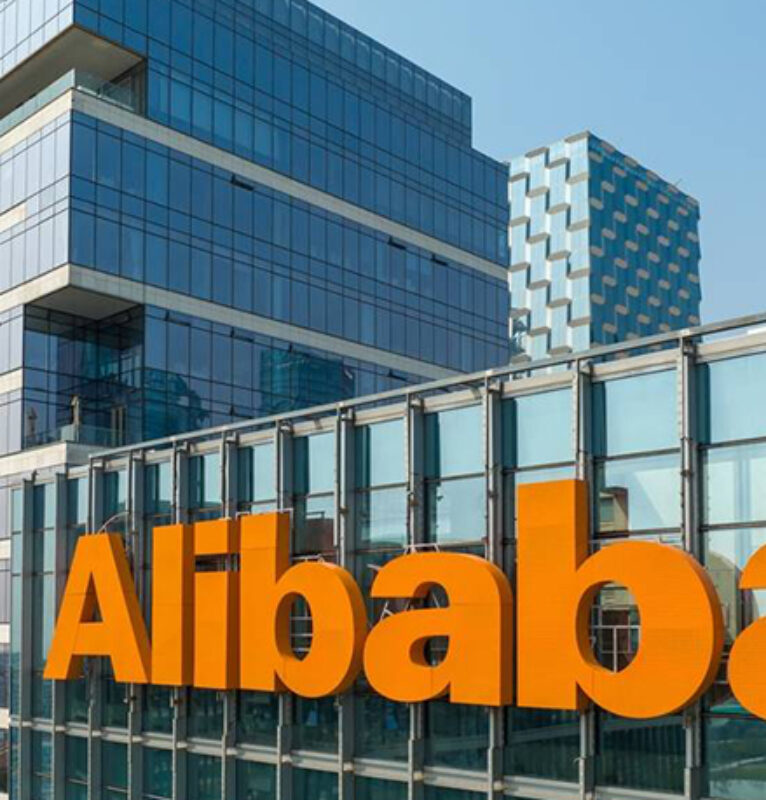Alibaba Steps Up Fight Against ‘Hidden Links’ and IPR Vigilance Post Reorganization
As Alibaba Group restructures, one thing isn’t changing: the company’s emphasis on protecting intellectual property rights.
Matthew Bassiur, Alibaba’s Vice President and Head of Global IP Enforcement, said the platform is deploying more algorithms related to ‘hidden links’ and IPR protections designed to detect counterfeits.
Earlier this year, Alibaba embarked on its most extensive reorganization ever, creating a holding company, six business groups and other independent companies from within its ecosystem. Alibaba’s IPR team works closely with the business groups to eliminate bad actors.
“Our mission to protect IP rights remains the same. We’re only going to get better from here,” said Bassiur, who has served as the Head of Global IP Enforcement at Alibaba for nearly eight years. Since last fall, Bassiur’s team has grown, adding more IPR enforcement personnel in Alibaba offices, including Washington, D.C., Paris, Milan, Madrid, and Hangzhou.
Brands and associations said they are feeling the benefits. According to Alibaba’s Annual IPR Report, the Hangzhou-based internet platform company empowered over 640,000 rights holder accounts registered on its intellectual property protection platform in 2022.
Moreover, by the end of last year, the Alibaba Original Designs Protection Platform had defended more than 800 million photos, over 56 million short-form videos, and more than 580 thousand design manuscripts, benefiting over 10,000 designers.
“Amidst Alibaba’s recent restructuring, the company’s resolute commitment to safeguarding intellectual property remains unyielding,” said Bob Barchiesi, President, International Anti-Counterfeiting Coalition. The IACC has partnered with Alibaba since 2012, and Barchiesi has testified before the U.S. Congress that Alibaba was the gold standard in IP enforcement.
The fight against criminals, from shoplifters to counterfeiters, is becoming more critical than ever. Retail crime in the U.S. accounted for over $112 billion in losses for the industry last year, up nearly 20% year-on-year, with bad actors becoming increasingly sophisticated, according to the National Retail Federation’s annual report. Over half of respondents said they had increased their technology and software solution budgets in the past year.
Crackdowns Continue
Alibaba’s anti-counterfeiting programs remain comprehensive as well as effective. When Alibaba identifies online targets for investigation, they are tracked offline to identify points of manufacture or distribution for police action. Alibaba’s latest data, covering July 2022 to June 2023, shows 168 law enforcement referrals—leading to 619 arrests and the closure of 257 facilities. The aggregate value of the cases was approximately $159 million.
During that same period, Alibaba responded to thousands of law enforcement requests for information. This support led to an additional 751 arrests and the closure of 273 facilities.
The Californian bicycle company Specialized has worked closely with Alibaba for over a decade on anti-counterfeiting efforts and affirmed that the Hangzhou-based group’s commitment to IP protection remains steadfast.
“A recent effort by Alibaba was a huge success, and Alibaba continues to raise the bar for other e-commerce companies to follow when it comes to IPR protection,” said Andrew Love, Global Brand Protection Manager, Specialized Bicycle Components.
Complex Environment
To be sure, enforcement is becoming more multi-faceted as bad actors become increasingly sophisticated in their use of chat groups and social media.
One such complicating trend involves hidden links to sell infringing products. Online sellers create a listing for a seemingly unrelated, innocuous product, but which actually offers a different and counterfeit item. To promote these decoy listings without being identified by the marketplace, the traffickers in counterfeit goods use social media and chat groups to market the fakes. Chat groups promoting hidden links are mushrooming on social media sites and instant messaging apps, and the corresponding links are often made available only for a short time to avoid detection.
“This is the Wild West in the fight against counterfeits. Social media and chat apps must be at the table and part of the solution. They are obviously best positioned to police their own platforms. If they don’t, hidden links will continue to flourish,” said Alibaba’s Bassiur.
For its part, Alibaba has worked to protect its consumers from such nefarious schemes by building algorithms based on historical data to proactively identify and remove thousands of listings offering hidden sales.
Technology Updates
Retailers are turning to technology to help them to support loss prevention or asset protection. The NRF’s annual survey showed over one-third of respondents are researching technologies including artificial intelligence-based ecommerce fraud detection analytics, but only 13% have fully implemented this type of solution.
Last year, Alibaba’s technological innovations to safeguard IP included video fingerprinting, video watermarking and more intelligent algorithms.
“Alibaba’s unwavering commitment to safeguarding brands and consumers left me in awe,” Yamish Yakoob, UK Intellectual Property Attaché for the Gulf Cooperation Council at the British Embassy in Riyadh, Saudi Arabia.
Alibaba also updated its IPR-infringement monitoring program, Queqiao, through which Alibaba Anti-Counterfeiting Alliance (AACA) members share their knowledge in counterfeit-detection techniques, and other critical input from brand owners, making it easier for Alibaba to identify and address cases of IPR violations.
The AACA is an industry-leading, collaborative effort by Alibaba and rights holders establishing a forum for collaboration, exchange of information, and support for law enforcement actions. Formed in 2017, it was the first alliance in the world between an e-commerce platform and brand owners. The AACA has rapidly grown from 30 original members to 221 rights holders from 21 countries representing nearly 1,200 brands.
Alibaba has enhanced its detection capabilities via account behavior, feature recognition and optical character recognition, which converts printed text into digital image files for the program to scan documents. Once identified, possible infringing products are forwarded to rights holders for confirmation and can be taken down with a single click.
“We lean on some of the most advanced technologies in the world to root out counterfeits,” Alibaba’s Bassiur.
The broad-based anti-counterfeiting push has been applauded even at the governmental level.
“The company consistently delivered on its promises and continues to display a steadfast commitment in the overall fight against counterfeiters. Alibaba’s leadership and partnership in IPR protection are greatly appreciated,” said James Mancuso, Director, U.S. National Intellectual Property Rights Coordination Center.
Discover what people are saying about Alibaba’s IPR protection.

